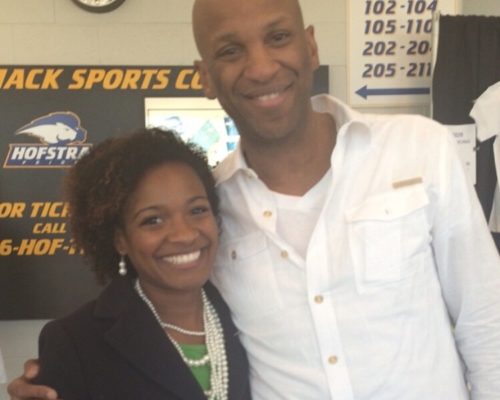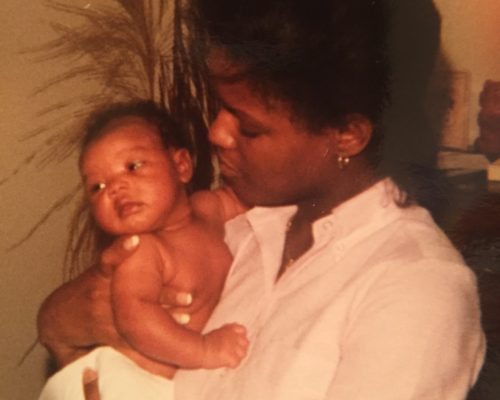When you go see the movie “Birth of a Nation” and then return home to “your” city that’s 8 percent black; where your upstairs neighbor, a white male, continually tries to convince your black dad why he and other black people should vote for Trump, a misogynistic man with a history of racial discrimination lawsuits; where another neighbor who’s a white cop, has only spoken to you once in the 3 years you’ve lived next door to him – that one time was because you said “hello” first.
When you sit through that same 2.5-hour movie and watch white men rape, hang, shoot, kill, buy, sell, force feed, and knock the teeth out of black men and women…and you know the movie was based on a true story – an American story – about Nat Turner, a black slave who led a rebellion in the 1800s, killing about 60 white slave owners, many of whom were guilty of the crimes I just mentioned.
When you get home from this movie, and then can only stomach 20 minutes of Ava DuVernay’s Netflix documentary, “13th,” about how white Americans found a loophole in the 13th Amendment, which has legally allowed them to enslave and criminalize black people on minor charges, throw them into prison and put them to work, so that “your country” which was once “great” can thrive economically and hopefully one day become “great again” like it was during slave times.
When, the next day, you sit at your laptop, and wonder if by typing up and sharing this honest regurgitation of thoughts and feelings, you will in fact be considered the “aggressor” despite all of the passive aggressions made towards you on a daily basis as a result of your skin color or hair texture. But at the same time you know God made you an emotionally sensitive black woman and gave you a storytelling superpower, which you’re still trying to figure out, because he knew you would write all of these experiences in a way that people could understand and perhaps cause them to evaluate and change their own beliefs and behaviors.
When you try to imagine what it’s like to be free from thinking about your skin color or hair texture for a day, and you remember having that freedom in a few other countries you’ve visited. But it hurts your soul that you can’t have this freedom in your own home, in your own neighborhood, in your own city, state or country. “Maybe I’ll just move,” I always say to myself. But who will stay and change things? We’re already fleeing our own neighborhoods, leaving them in despair, and letting gentrification be.
The people in charge of making “Birth of a Nation” made sure to close the movie by telling us that Nat Turner’s body was torn apart after he was lynched for leading his rebellion. His skin was stripped, boiled and turned into lamp shades and pocketbooks. His body fat was used to make soap. Perhaps this was a reminder or warning to us “woke” and “tired” black folks that engaging in an organized revolution might lead us to the same fate, as Roger Guenveur Smith’s “house negro” character reminded us throughout the movie.
This movie made me reflect on a solo rebellion I led at my previous job just a week ago. It was actually quite miniscule in comparison to Nat Turner’s. I found out last Wednesday that the company was laying me off. My last day would be two days later, on that Friday. Coincidentally, my self-evaluation was also due on that same Friday. I used my self-evaluation as an opportunity to cite many of the racially incentive things that other employees said to me during my three years with the company.
I wrote about how I attended a meeting with one of our project managers and a client. This client referred to the black and Hispanic people who frequently sat on the green near his office as “those bums.” The project manager said nothing – not even after I confronted him. When I reported the issue to our company in writing, they did nothing but tell me it wrong for the client to say that.
I wrote about the time I attended the office holiday party in December, and the president of the company made it her business to tell me and the only other three employees of color in the organization to split up and mingle with “everyone else.” When we ignored her the first time, she came back and told us again.
I wrote about how one senior-level manager made it a point to tell me what colors look best on black people, how another asked me if my hair was real, and how another told me to be safe going to a black neighborhood and how she never offered that advice when I was going to white neighborhoods.
I wrote about how while working on a state transportation project, a project manager, contracted by a government organization, said he hoped his car was still outside while we were doing public outreach in a black and Hispanic neighborhood.
My rebellious and “confidential” self-evaluation went viral throughout the company. The one other black employee there, who happened to be a senior manager, said she was uncomfortable with what I wrote, even though she had experienced many of the same things herself.
The rebellion ended in a way, which legally I can’t discuss. However, what I can say is what a FAMU professor once told our Business Analysis class. He said to make sure you always had “Fuck You Money” on the side, so if your place of employment started doing things you were uncomfortable with, you could leave at your own free will and/or not have to accept any agreements that you were uncomfortable with. You should have “Fuck You Money” for every area of life.
“Birth of a Nation” also made me reconsider the relationships between churches and the government. White slave owners wanted Nat Turner, a preacher, to come to their plantations and preach to their “lazy” slaves about obedience to their masters. The slave owners paid Nat Turner’s slave master handsomely for each appearance he made. This part of the movie made me think about my old church, who’s pastor was a city prosecutor. It made me think about the sermons he preached and question why churches are not taxed. It also made me think about how the pastor would bring in candidates during election time and let them speak to us about why they deserved our votes. They would come just in time for their little speech and would leave well before service ended. They never came back to visit the church again…well maybe during another election season.
It made me think about all of the different ways that black people receive messages about who we were, who we are, and what we are capable of. It made me think about these large white-owned businesses like Viacom owning BET and Time, Inc. owning Essence Magazine.
I thought about how when I worked for Hearst Newspapers, I was praised for writing about cultural events and racial topics at a newspaper in a small city. But when I was promoted to the larger newspaper in Connecticut’s largest city, the editorial director, who was over all of the state’s newspapers, said she no longer wanted me to write about those topics and tried to convince me that writing about Census trends would be more valuable. I left the company shortly thereafter.
Many people know me as being very happy and giggly; friendly and energetic, and a lover of all people – which I am, but there’s also a part of me that’s enraged and beyond frustrated. There’s a part of me that wishes I could have been a part of Nat Turner’s rebellion. There’s a part of me that wishes I could have been part of The Black Panther Party. I adore Malcom X and Angela Davis’s fighting spirits, and I wonder if this country would be better off if desegregation didn’t happen, as I’ve heard some of my elders suggest.
I know someone will read this and wonder how I could ever say such things. Watch enough “Birth of a Nation” movies.
Watch enough Sandra Bland, Alton Sterling and Rodney King videos.
Spend 12 years of your life in classrooms with some classmates, whose parents taught them nothing about other races and other cultures.
Listen to old black people tell their stories about how they had to sit in the balconies at movie theaters or how they were hosed and attacked with dogs when they spoke up for themselves.
Listen to the stories of well-established black business owners in Tulsa, whose businesses were destroyed with bombs.
Read the reports of four innocent black girls, who were killed at church one Sunday morning when some maniac bombed their church.
Listen to my dad talk about how police brutally assaulted him. In fact, listen to any young black male talk about how they’re constantly pulled over and harassed by police.
Listen to some of these black musicians talk about how white music executives make them, under contract, tell lies about themselves in order to portray images of black people and communities.
Look at enough magazines and see how your favorite black actors and actresses’ skin has been lightened.
Look at how they hid Michelle Obama’s black woman’s figure for at least 8 years.
If you pay even the slightest bit of attention, you will be enraged.
Looking back, I know that my rage started in high school. I’m mad that I saw a need for me to join the Students United for Racial Equality student group. I’m mad that when I transferred to Southern Connecticut State University, I also saw a need to join the Black Student Union.
I’m mad that Quinnipiac University, where I attended graduate school, just recently had an incident on social media where a white student was photographed wearing a dark facial masque, and the caption read “Black Lives Matter.”
I’m mad that I missed a work meeting because I was watching a white cop murder Alton Sterling on national television. I’m mad that there’s so many of these new-age lynchings on television and social media, “for all to see” similarly to how Nat Turner was lynched.
While I’m angry that slavery existed and that Birth of a Nation was based on a true story, I’m angrier that a movie made about the 1800s doesn’t feel so different from 2016.




